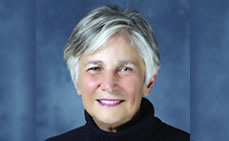Diane Ravitch Speaks at Barnard College
Only a concerned public voice will save our schools
By Leah Metcalf
 Diane Ravitch, professor of education history and policy at New York University’s Steinhardt School of Culture, Education and Human Development delivered a speech entitled “Is Education a Public Good or a Shoestore?” to a full auditorium at Barnard College. Ravitch’s talk focused on the adverse effects of the privatization of public education. Ravitch, who formerly worked for the Hoover Institute, a conservative think-tank, argued that the privatization of public schools by turning them into charter schools, and high-stakes testing are both part of a larger “raid on the public sector,” which weakens our national social fabric.
Diane Ravitch, professor of education history and policy at New York University’s Steinhardt School of Culture, Education and Human Development delivered a speech entitled “Is Education a Public Good or a Shoestore?” to a full auditorium at Barnard College. Ravitch’s talk focused on the adverse effects of the privatization of public education. Ravitch, who formerly worked for the Hoover Institute, a conservative think-tank, argued that the privatization of public schools by turning them into charter schools, and high-stakes testing are both part of a larger “raid on the public sector,” which weakens our national social fabric.
Ravitch argued that the testing of students under No Child Left Behind and Race to the Top make public schools akin to shoe stores, where test scores could be seen as profit. A failure to produce high enough test scores, causes schools to be shut down, just like a shoe-store that does not make a profit is forced to shut down. Ravitch argued that this type of reform does not translate into a viable model. It assumes that the only thing that matters for a child’s education is his or her test scores, since schools that receive low test scores lose the privilege to teach: there have been 150 schools closed in New York City alone. This creates a “near apartheid-like situation” in districts where schools push low scoring students into other schools, and charter schools fight for resources with unprivatized public schools.
Ravitch argues that democracy is failing in our public schools. She argues that schools in California that have been taken over by parents (under the new “Parent Trigger” law) are unjustly taken from their proper caretakers: the public. It is the public, not a small group of individuals, that schools have been entrusted to because the public can make the best long-term decisions for schools.
“You can’t sell Central Park”, Ravitch said, as a way of highlighting how we value and treasure things that we share in ownership. Ravitch argued that too many “billionaires” who seem to have an anti-government agenda have taken that battle to schools, by pushing state governments to create more charter schools. Even in schools where private parties do not have decision making in schools, public schools are not set up to succeed, since it is nearly impossible to get 100 percent proficiency on tests. Schools have become undemocratic, with teachers losing most of their autonomy, and students’ interests losing to an increasingly narrow curriculum. Ravitch noted that no school that is taken over by the state has been successfully turned around, and that many charter schools perform poorly.
Ravitch concluded her talk by analyzing the new turn to value added measures. She said that Tennessee has been using value-added scores to measure teacher performance for years, and that they are not a highly ranked state in terms of education. Ravitch’s ultimate message was that only the unified and firm voice of a concerned public will make our policies less adversarial, more thoughtful policy for our schools. #
Leah Metcalf is a student at Barnard College.
